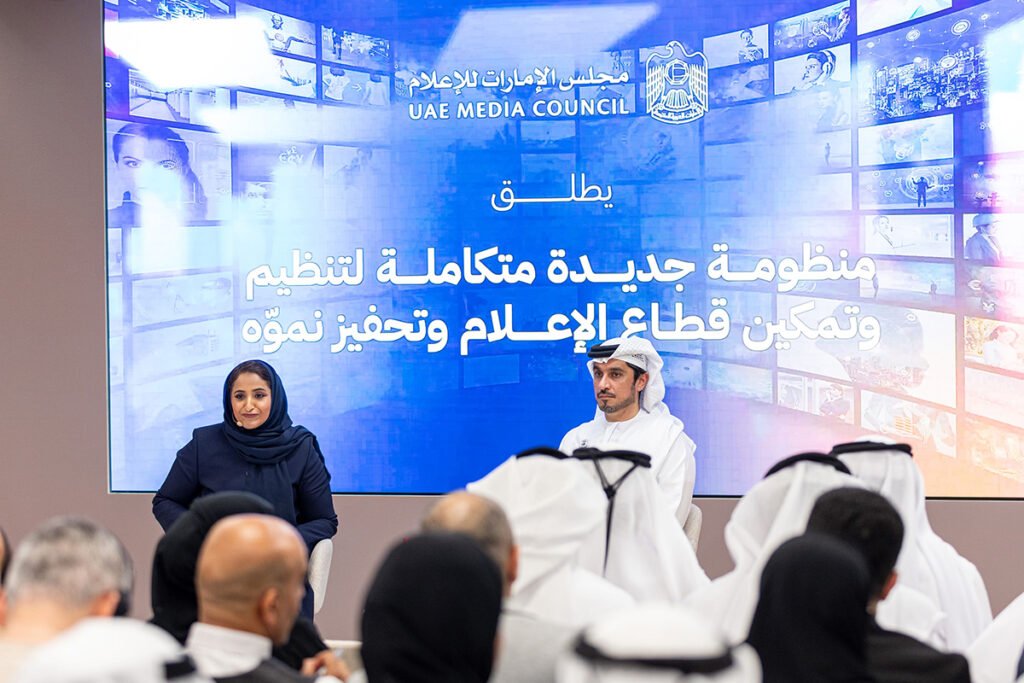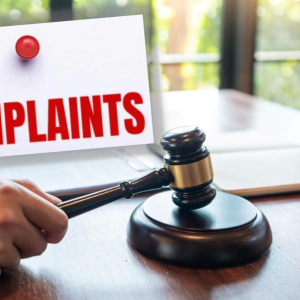The UAE new media law is the most significant update in over 40 years. It changes the way digital content is created, shared, and controlled across the country. With the rise of social media, streaming platforms, and digital news, the UAE government has stepped in to modernize media rules to fit today’s digital world. This new law affects everyone — from content creators and digital businesses to everyday internet users.
In this article, we explain the key points of the law, its impact on digital content creators, social media companies, and what it means for users in simple, easy language.
What Is the UAE New Media Law?
The UAE new media law replaces old rules that no longer fit the fast-growing digital media space. Before, the laws mainly focused on traditional media like newspapers, TV, and radio. But digital content has grown rapidly over the past decades, making up a huge part of how people communicate and get information today.

This new law covers many areas, including:
- Online videos and streaming services
- Social media posts and influencers
- Digital news platforms and blogs
- User-generated content on websites and apps
By updating these rules, the UAE aims to protect the rights of content creators, safeguard users, and encourage responsible and innovative digital media growth.

Why Is the UAE New Media Law Important?
The media world has changed a lot since the last media law was passed 40 years ago. Platforms like YouTube, TikTok, Instagram, and Twitter have billions of users worldwide, including millions in the UAE. People rely on these platforms for news, entertainment, education, and social connections.
However, this rapid growth has brought challenges:
- Spread of fake news and misinformation
- Privacy concerns and data misuse
- Harmful or offensive content
- Copyright violations and plagiarism
The UAE new media law aims to address these issues by setting clear rules for digital content. This will help build trust between creators, platforms, and users. The law also supports the UAE’s goal to be a global leader in digital innovation.
Key Features of the UAE New Media Law
Here are the major changes introduced by the UAE new media law that everyone should know:
1. Regulation of Digital Content Creators
The law requires digital content creators — including social media influencers, vloggers, and bloggers — to follow specific guidelines. They must ensure their content is truthful, respectful, and does not violate anyone’s rights.
Creators will have to:
- Avoid posting false or misleading information
- Respect privacy and avoid sharing personal data without consent
- Protect copyright and intellectual property
- Follow ethical standards in their content
This helps maintain quality and trustworthiness in the digital space.
2. Licensing and Registration Requirements
Many digital content creators and platforms may now need to register with official authorities. This step aims to bring transparency and accountability to the digital media sector.
For platforms like streaming services and online news websites, registration will mean they must meet technical and legal standards set by the government. This could include content monitoring, data security, and user protection measures.
3. Measures Against Harmful Content
The law strengthens actions against content that promotes hate speech, violence, terrorism, or any form of discrimination. It also targets the spread of fake news and harmful misinformation.
Platforms and creators will be responsible for removing such content quickly once it is flagged. This helps create a safer online environment for everyone.
4. Establishment of a Media Regulatory Body
The government will create a special body to oversee the new media law. This body will work closely with media companies, digital platforms, and content creators to ensure the law is followed.
It will also handle complaints, investigate violations, and impose penalties when needed.
5. Penalties and Fines for Violations
The law clearly defines penalties for breaking its rules. These penalties may include:
- Heavy fines for individuals or companies
- Temporary or permanent bans on platforms or content
- Possible legal action in serious cases
The goal is to encourage compliance and protect the integrity of the media sector.
How Does the UAE New Media Law Affect Digital Content Creators?

For digital content creators, the law means more responsibility but also more clarity. Here’s what creators should keep in mind:
- Follow the new guidelines on content accuracy, privacy, and copyright.
- Register with authorities if required, especially for professional or commercial content.
- Be cautious about the material shared — avoid offensive or harmful content.
- Understand that violations could lead to fines or suspension of their channels.
While some creators may find these rules strict, they also offer protection. Clear regulations help prevent plagiarism, cyberbullying, and unfair treatment, allowing creators to work in a safe, fair environment.
What About Social Media Platforms and Digital Businesses?
Social media platforms like Facebook, Twitter, TikTok, and YouTube will also need to adjust their operations in the UAE.
They will be required to:
- Monitor and remove harmful or illegal content faster.
- Work with the new media regulatory body to report violations.
- Ensure user privacy and data protection in line with UAE laws.
- Possibly register their services to operate legally within the country.
Digital businesses operating in media, advertising, and content production will benefit from clear laws. These rules reduce uncertainty, improve trust with users, and attract more investment into the sector.
What the New Media Law Means for Everyday Users
For everyday internet users in the UAE, the new law aims to create a safer and more trustworthy online space. Users can expect:
- Less fake news and misleading information online.
- Protection of personal data and privacy rights.
- Safer interactions on social media and digital platforms.
- Clearer rights to report harmful or offensive content.
However, users should also be aware that their online activities will be more closely monitored for compliance with the new rules.
International Impact and UAE’s Digital Future

The UAE’s move to update its media laws reflects global trends. Many countries are now introducing stricter regulations on digital content to protect citizens and promote responsible media.
By implementing this law, the UAE aims to position itself as a leader in digital governance. The government wants to balance freedom of speech with protecting society from the negative effects of unchecked content.
This approach supports the UAE’s vision for a digital economy that is innovative, secure, and globally competitive.
Challenges and Criticisms
Like any major law, the UAE new media law faces some challenges and criticism:
- Some worry it could limit freedom of expression if not applied fairly.
- Content creators may find new compliance requirements burdensome.
- Platforms will need to invest more in monitoring and reporting systems.
The government has promised to implement the law with transparency and fairness to balance regulation and creativity.
Final Thoughts: Preparing for the New Media Landscape in the UAE
The UAE new media law is a landmark update that will shape the digital media sector for years to come. It brings much-needed clarity, protection, and responsibility for creators, platforms, and users.
If you create, share, or consume digital content in the UAE, staying informed about these changes is essential. The law opens doors for safer and more innovative digital media, but it also demands respect for rules and ethics.
This is a new chapter for media in the UAE — one that will define the future of digital communication in the region.
Read More: Dubai International Airport’s New Plan for Hajj 2025 Pilgrims












